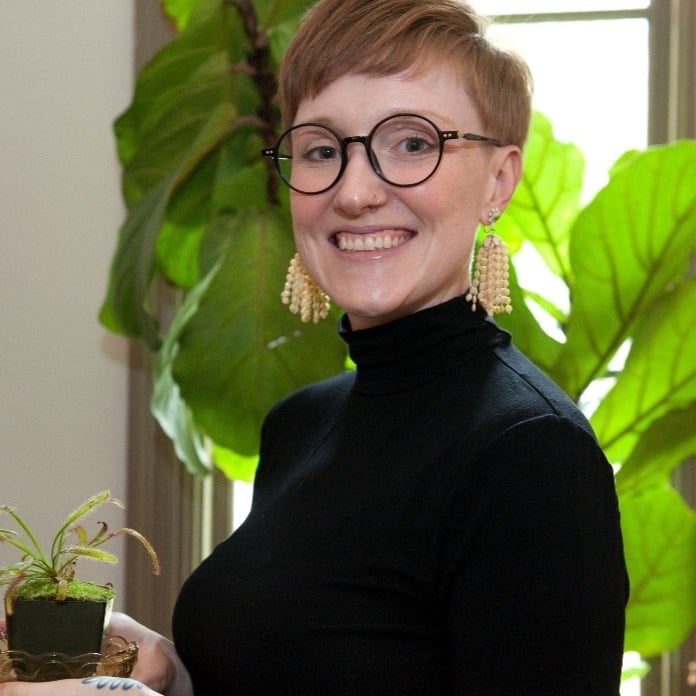FEBRUARY 6, 2026
9:00 am - 1:30 pm CST
LIVE WEBINAR - INTERACTIVE DISTANCE LEARNING
4 CE DIAGNOSING HOURS NBCC APPROVED & 4 CE CLINICAL HOURS ASWB ACE APPROVED
Neurodivergence refers to individuals whose brains function differently, including those with Autism, ADHD, anxiety, OCD, Sensory Processing Disorders, and many other differences. It is common but often misunderstood, with many associated features and misdiagnoses. Mental health clinicians should understand neurodivergence in therapy to effectively work with clients. This webinar offers an introduction and focuses on diagnosis and working with neurodivergent clients in therapy.
-
CLASS DESCRIPTION
What is Neurodivergence? 'Neurodivergent' is a term describing groups of people whose brains function differently from the norm in some way. This includes the differences often seen in the Autism Spectrum, ADHD, anxiety, OCD, Anxiety Disorders, Sensory Processing Disorders, learning differences, and many other labels used both within and outside of the medical world.
Neurodivergence is incredibly common, very misunderstood, and has many comorbidities and
associated features. Difficulties due to neurodivergence are also frequently misdiagnosed in ways that are not helpful or even potentially harmful for clients. It is for these reasons that it is important for mental health clinicians to have an understanding of neurodivergence in therapy room.This webinar will be an introduction to the world of Neurodivergence, this workshop will focus on diagnosis and an exploration of working effectively with neurodivergent clients in the therapy room.
-
CLASS OBJECTIVES
-
Participants will explain Neurodiversity within a historical, biological, social, and ethical framework.
-
Participants will describe the impact of neurodivergence on current theory and the ethical practice of therapy.
-
Participants will identify differential diagnosis within neurodivergence for ethical practices.
-
Participants will be able to differentiate between Neurodiversity-Affirming and non-affirming counseling practices.
-
-
CLASS AGENDA
9:00–10:00 Neurodiversity within a historical, biological, social, and ethical framework.
10:00-11:00 Explore the impact of neurodivergence on current theory and the ethical practice of therapy.
11:00-11:30 Break
11:30-12:30 Differential diagnosis within neurodivergence for ethical practice.
12:30-1:30 Neurodiversity affirming counseling practices.
-
FREE EBOOK
ARE YOU INTERESTED IN LEARNING MORE ABOUT NEURODIVERGENCE? This e-book is provided for educational and informational purposes only. It is not a substitute for professional supervision, training, or therapy. The content reflects current knowledge in the field of neurodivergence and related clinical practices, but it does not constitute formal continuing education credit.
-
NEURODIVERGENCE: AUTISM
This course delves into Atypical Autism, challenging the DSM's conventional ASD model through academic and narrative insights. It aims to broaden understanding of Autism, emphasizing neurodiversity and social implications while addressing diagnostic gaps in marginalized groups. LEARN MORE
-
NEURODIVERGENCE: ADHD
This workshop provides therapists with a comprehensive understanding of ADHD, from its historical roots and DSM-5 diagnosis to its neurobiological impact. We'll explore assessment tools, the role of medication in collaborative care, and equip you with effective strategies for working with clients impacted by ADHD. LEARN MORE
-
NEURODIVERGENCE: SEX
This course teaches mental health professionals how to support the sexual health of clients with ADHD and Adult diagnosed Autism using a neurodiversity-affirming approach. You’ll learn practical strategies for assessment, communication, and navigating challenges, along with guidance on ethics and addressing misconceptions for more effective, affirming care. LEARN MORE
-
NEURODIVERGENT TRAUMA: ADHD/AUTISM & DISSOCIATION
A neurodiversity-affirming CEU for therapists to differentiate dissociation from ADHD/autism, map sensory profiles to the window of tolerance, and integrate LGBTQIA+ care-then turn that clarity into client-ready tools. You’ll clarify the relationship between ADHD/autism and dissociation for accurate differential diagnosis and realistic treatment plans. Leave with practical screens, an ND-aligned stabilization playbook, and printable handouts. Ever wondered: is this autism/ADHD or trauma? Let’s explore the relationship between the two-trauma and neurodivergence-in the Neurodiversity-Affirming Trauma-Informed CEU. LEARN MORE
-
NBCC APPROVAL (LPC)

KDH Collective - ACEP No. 7323
KDH COLLECTIVE HAS BEEN APPROVED BY NBCC AS AN APPROVED CONTINUING EDUCATION PROVIDER, ACEP NO. 7323. PROGRAMS THAT DO NOT QUALIFY FOR NBCC CREDIT ARE CLEARLY IDENTIFIED. KDH COLLECTIVE IS SOLELY RESPONSIBLE FOR ALL ASPECTS OF THE PROGRAMS.
-
ASWB ACE APPROVAL (LCSW)

KDH COLLECTIVE PROVIDER #2506, IS APPROVED TO OFFER SOCIAL WORK CONTINUING EDUCATION BY THE ASSOCIATION OF SOCIAL WORK BOARDS (ASWB) APPROVED CONTINUING EDUCATION (ACE) PROGRAM. REGULATORY BOARDS ARE THE FINAL AUTHORITY ON COURSES ACCEPTED FOR CONTINUING EDUCATION CREDIT. ACE PROVIDER APPROVAL PERIOD:. 09/30/2025 - 09/30/2026. SOCIAL WORKERS COMPLETING THIS COURSE RECEIVE 4 CLINICAL CONTINUING EDUCATION CREDITS.
Presenters:
Whitney Storey, MS, LPC, ASDCS
KDH Education Director & KDH Counselor
 Whitney (she/her) is a Licensed Professional Counselor, Senior Instructor of Psychology, therapist at KDH Counseling, and lifelong learner. With a Master of Science in Psychology and an additional Master of Science in Counselor Education. Whitney specializes in Acceptance and Commitment Therapy (ACT), helping individuals live value-driven lives to reach their full potential. With a decade of experience, she focuses on parenting, motherhood, perinatal mental health, identity, and incarceration. As a neurodivergent counselor and mother, her radical self-acceptance guides her unconditional positive regard for the people she interacts with daily.
Whitney (she/her) is a Licensed Professional Counselor, Senior Instructor of Psychology, therapist at KDH Counseling, and lifelong learner. With a Master of Science in Psychology and an additional Master of Science in Counselor Education. Whitney specializes in Acceptance and Commitment Therapy (ACT), helping individuals live value-driven lives to reach their full potential. With a decade of experience, she focuses on parenting, motherhood, perinatal mental health, identity, and incarceration. As a neurodivergent counselor and mother, her radical self-acceptance guides her unconditional positive regard for the people she interacts with daily.

KD Holmes, MS, LPC, EMDR Certified, BTTI Trained
Founder of KDH Collective & KDH Counseling
KD (she/her) is a practicing therapist at KDH Counseling for the past 20 years. She specializes in Anxiety Disorders, Phobias, OCD, and PTSD. She is certified in Eye Movement Desensitization and Reprocessing, and trained in BTTI for OCD treatment. KD utilizes biology as a foundation to guide behavioral approaches to mental health treatment, using DBT, RODBT, and ERP to address issues through tangible steps. Trauma reprocessing techniques like EMDR, and Deep Brain Reorienting are valuable tools to transform the nervous system and address trauma responses. The wisdom of biology, practitioner experience, data, and protocols lead to the best outcomes for clients and professional development.
ENROLL IN NEURODIVERGENCE IN THE THERAPY ROOM
$80 for 4 CE Hours
NeuroPod Series: Neurodivergence in the Therapy Room
KD Holmes, MS, LPC, and Whitney Storey, LPC, ASDCS, dive deep into the principles and practices of Neurodiversity Affirming Therapy, exploring real-world strategies to help therapists better support neurodivergent clients. KD and Whitney highlight key takeaways from their upcoming continuing education event. This specialized training is crafted for LPCs, LCSWs, and LMFTs who want to refine their clinical skills, strengthen their client relationships, and deliver care that celebrates the strengths of neurodivergent individuals.
Leaning into Neurodivergence: Autism
Whitney Storey, MS, LPC, and Monet David, MS, LPC, ADHD-CCSP discuss neurodivergence and leaning into the nuances of identifying and supporting the autism diagnosis in the therapy setting. Monet and Whitney get into misconceptions surrounding autism, the importance of understanding neurodiversity, and the specific aspects of therapy for autistic individuals. The significance of recognizing the lived experiences of autistic people, the challenges of masking, and how traditional diagnostic frameworks can sometimes fail to capture the true essence of autism, is invaluable to fostering a working therapeutic relationship between client and therapist.
Leaning into Neurodivergence: ADHD
In this podcast episode, Monet David, MS, LPC, ADHD-CCSP, dives into one of her most passionate topics—ADHD in therapy. Drawing from her extensive training and hands-on experience, Monet sits down with Whitney Storey, MS, LPC, ASDCS, to share valuable insights, practical tips, and real-life examples that demystify ADHD and neurodivergence. Together, they break down complex concepts into easy-to-understand lessons, empowering therapists with knowledge they can use in their office. This conversation provides approachable guidance to help make neurodivergence accessible, relatable, and meaningful.
For LPCs, LMHCs, LCPCs, PLPCs, LMSWs, LCSWs, LMFTs, and other state-credentialed counselors
Your satisfaction is our goal and our guarantee. Concerns should be addressed to:
KDH COLLECTIVE has been approved by NBCC as an approved Continuing Education Provider, ACEP NO. 7323. Programs that do not qualify for NBCC credit are clearly identified. KDH COLLECTIVE is solely responsible for all aspects of the programs.
We work hard to ensure the quality of our courses and educational materials. If you would like a refund, please email your request with an explanation to kd@kdholmeslpc.comwithin 48 of the live course, and we will review the refund request.
KDH Collective, 2506, is approved as an ACE provider to offer social work continuing education by the Association of Social Work Boards (ASWB) Approved Continuing Education (ACE) program. Regulatory boards are the final authority on courses accepted for continuing education credit. ACE provider approval period: 09/30/2025-09/30/2026. Social workers completing this course receive 4 clinical continuing education credits.
To successfully complete this course and receive a certificate of completion / continuing education credit, participants must:
-
Attend the full live webinar course from start to finish.
-
Submit evaluations forms. (Completion of the evaluation is a required step before certificates are issued.)
- CEU certifications will be emailed within a week of attending course and completing evaluations.





